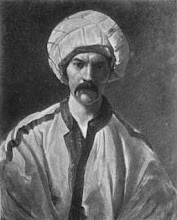By The New York Times editorial board 10
June 2015
The decision on Sunday by Saudi Arabia’s
Supreme Court to uphold the depraved sentence imposed on the blogger Raif
Badawi last May by the criminal court in Jeddah is tantamount to a death
sentence for the “crime” of free expression.
The criminal court sentenced Mr. Badawi, whose case has invited worldwide condemnation, to 1,000 lashes, 50 to be administered “very harshly,” in public, once a week for 20 weeks. In addition, he is to serve 10 years in prison and pay a fine of 1 million riyals, about $267,000.
The criminal court sentenced Mr. Badawi, whose case has invited worldwide condemnation, to 1,000 lashes, 50 to be administered “very harshly,” in public, once a week for 20 weeks. In addition, he is to serve 10 years in prison and pay a fine of 1 million riyals, about $267,000.
There is no further appeal possible in the
Saudi courts. At this point, Mr. Badawi’s only hope lies in a pardon from King
Salman bin Abdulaziz.
In 2008, Mr. Badawi, now 31 years old, helped found a website, Free Saudi Liberals, that hosted discussion critical of Saudi Arabia’s religious establishment.
He was arrested in 2012, charged with
cybercrime. His initial sentence of 600 blows and seven years of imprisonment
was increased last May after prosecutors deemed his sentence too lenient.
Social media has exploded among Saudi
Arabia’s youth, providing a rare outlet for free expression in a society that
severely restricts it. It seems clear that the Saudi judiciary intends to make
an example of Mr. Badawi.
Mr. Badawi received the first 50 lashes in
January. His wounds were so severe that a team of doctors determined he was
unfit to receive a second round of lashes the following week. Mr. Badawi has
not been flogged since, but there is real fear following the Supreme Court’s
decision that the punishment may resume as early as this Friday, putting his
life at risk.
His death, or his crippling for life,
another real possibility, would be a blot that even Saudi Arabia — known for
administering brutal punishments that include amputations and beheadings —
would find difficult to live down.
The United States has called Mr. Badawi’s punishment inhumane. The European Union has vowed to make “every effort to engage the Saudi authorities in a dialogue on the need to recognize and respect freedom of speech for all.”
Mr. Badawi’s wife, Ensaf Haidar and the
couple’s three children have been granted asylum in Canada. The Muslim holy
month of Ramadan begins on June 18. This is a good time for King Salman,
crowned four months ago, to demonstrate his magnanimity, grant Mr. Badawi
clemency and allow him to join his family.












